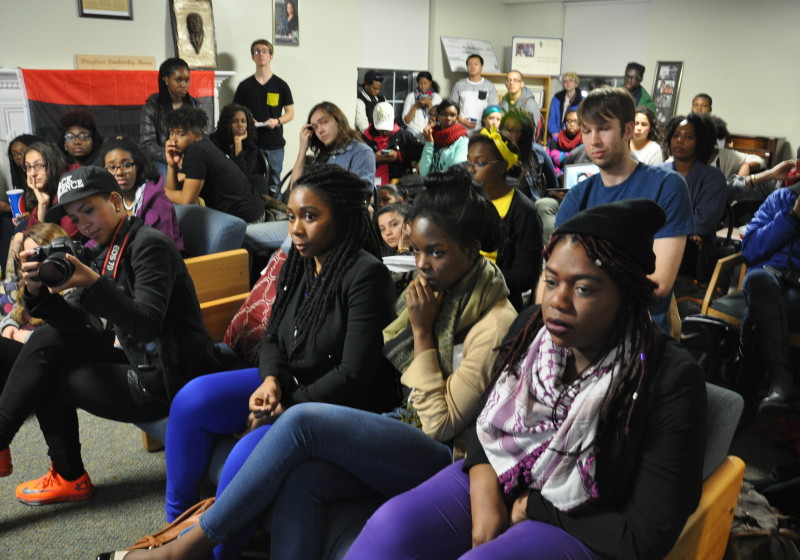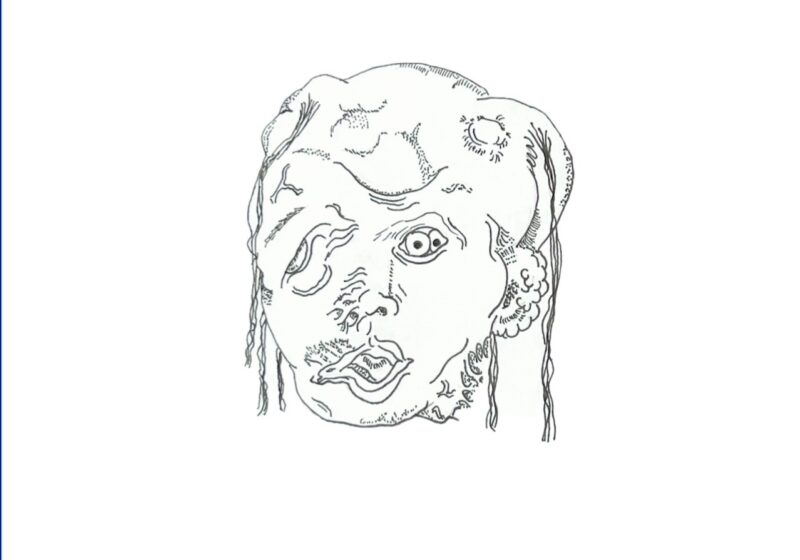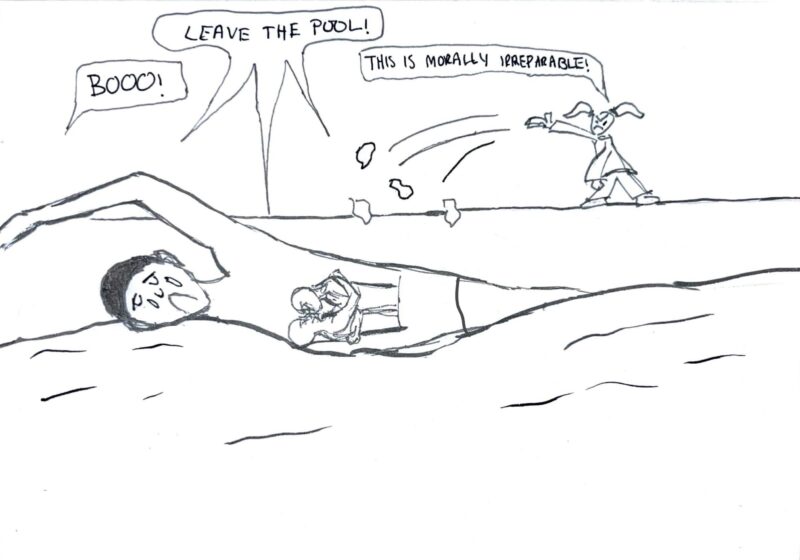It has been over six months since student members of Douglass Leadership House (DLH) were threatened by a flurry of racist posts on the anonymous social media app, Yik Yak, prompting an investigation by UR administrators that failed to reveal the names of the student or students who made the posts.
At a ‘Concerned Student’ meeting held on Sunday night in DLH, students expressed their concerns that the University has not done enough to prosecute the offending students or protect the safety of minority students.
Minority Student Advisory Board (MSAB) President Farid Adenuga and DLH President Charlisa Goodlet presided over the meeting. Adenuga explained that the purpose of the meeting was to solicit input and ideas from students, which he and four other MSAB members could bring before UR President Joel Seligman at a meeting Monday morning.
Adenuga said that Seligman had contacted him late last week, asking to set up a meeting with MSAB on Friday, Nov. 13 or Monday, Nov. 16.
Seligman’s request came in the wake of a rash of resignations by university presidents and chancellors around the country. University of Missouri President Tim Wolfe and Chancellor R. Bowen Loftin stepped down last week after a graduate student’s hunger strike and student protests that demanded their resignations. More recently, Mary Spellman, the Dean of Students at Claremont McKenna College in California, stepped down in the face of similar oppostion. Students at Ithaca College have also called for the resignation of their university president, Tom Rochon.
During the meeting at DLH, Adenuga and Goodlet reiterated last semester’s Yik Yak controversy, which they cited as one of their biggest concerns. Goodlet said that DLH members met with Dean of the College Richard Feldman and other administrators to discuss the issue of hate speech versus free speech, but that DLH was not kept informed about the results of the University’s investigation.
UR had contacted Yik Yak, which would not divulge the names of any posters because they were not “direct” enough threats. Goodlet added that, while it would be possible for the University to directly access the accounts and posts of Yik Yak users through the University network, UR would not take this option due to the risk of revealing other students’ private posts.
Students also discussed the underrepresentation of minorities among students, teaching assistants and faculty. Of the class of 2018, only 4 percent of students are Black or African-American. Adenuga cited the example of minorities leaving the UR faculty after being denied tenure. Another topic of concern was the racial sensitivity training that freshmen undergo during orientation, with people saying that the program would benefit from more minority leaders.
Other students at the meeting mentioned the Office of Minority Student Affairs (OMSA) and the Frederick Douglass Institute for African and African-American Studies (FDI) as being two of the primary resources on campus for minority students. Students expressed their concerns that these offices are underfunded or under-recognized; OMSA shares office space with the Study Abroad offices in Dewey 2-161, while FDI is classified as an institute rather than as an academic department.
Five students from MSAB, including Adenuga, Goodlet and senior Amy Entin, met with Seligman on Monday morning to hear his perspective on racial tensions on campus and to bring student concerns to him.
“The students candidly shared their views and I listened,” Seligman said in an email, calling the Monday meeting “the beginning of an important dialogue.”
MSAB and DLH plan to organize a protest on Friday, which will start at 11:30 a.m. in front of DLH, located on the Fraternity Quad, and will involve demonstrations around the River Campus, including at Wallis Hall.
Passanisi is a member of the class of 2017.




